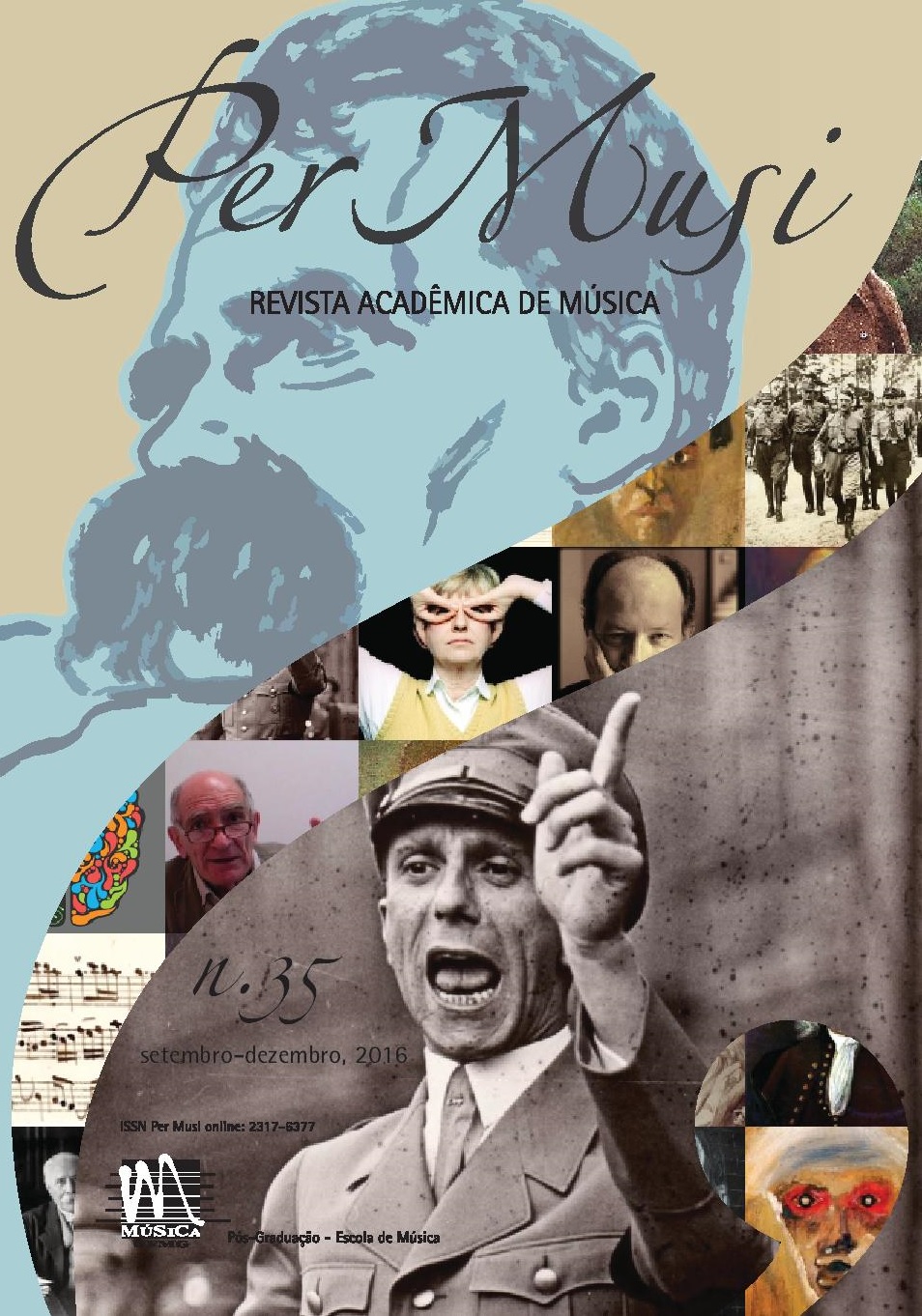Johann Mattheson e o ideal do Músico Perfeito
DOI:
https://doi.org/10.1590/permusi20163506Palavras-chave:
retórica musical em Johann Mattheson, ideal do músico perfeito, Musica Poetica no séc. XVIIIResumo
O Der Vollkommene Capellmeister (“O mestre‐de‐capela Perfeito”) é o último escrito musical de Johann Mattheson (1671‐1764) e, sem dúvida, sua obra mais ambiciosa. Ela representa o mais importante dos escritos pertencentes ao gênero de preceptivas musicais conhecidas como Musica Poetica – um conjunto de tratados surgidos entre os sécs. XVI e XVIII que faz uso sistemático de conceitos oriundos da instituição oratória para descrever os elementos da composição e da actio musical. Neste texto discorrer‐se‐á sobre a noção do músico‐orador perfeito. Inicialmente, será examinada a maneira como Mattheson se representa em sua autobiografia, não como sujeito individual, mas como tipo cortesão humanista, cristão, luterano, propondo uma leitura da mesma a partir do universo poético‐retórico. Nesta parte, será possível definir também o tipo constituído pelos destinatários da obra. Com isto, será possível evidenciar como o autor alemão emula lugares‐comuns já apresentados em retóricas latinas, em especial o De Oratore ciceroniano e a Institutio Oratoria, de Quintiliano ao definir o mestre‐de‐capela perfeito. Finalmente, serão examinados lugares‐comuns diretamente ligados à ideia do músico perfeito: a possibilidade de se atingir a perfeição, os requisitos para alcançá‐la, assim como a contribuição da natureza e da arte para esta tarefa e a importância de conhecimentos extrínsecos à técnica musical para se atingir este ideal.
Downloads
Publicado
Edição
Seção
Licença

Exceto onde está indicado, o conteúdo neste site está sob uma Licença Creative Commons - Atribuição 4.0 Internacional.












